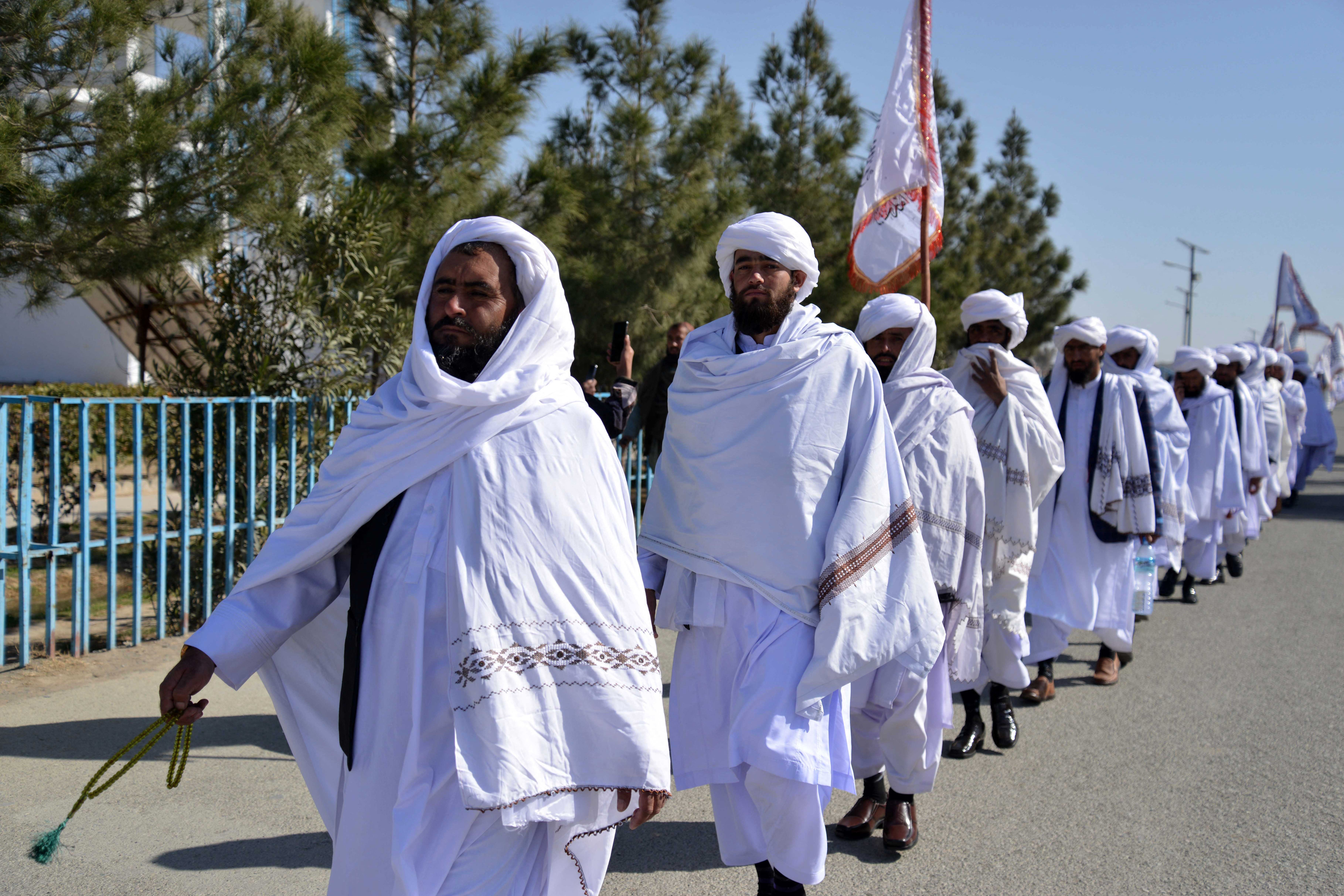This article first appeared on our partner site, Independent Persian
Since returning to power, the Taliban has made spreading its ideology a key priority. From prisons and rehab facilities to military bases, “religious education” is becoming a cornerstone of Afghanistan’s institutions. By introducing courses in Quranic recitation and exegesis, as well as broader religious instruction, the group aims to bring more Afghans closer to its strict interpretation of Islam and convince them of the merits of its fundamentalist approach.
Recently, images of the “graduation ceremony” of 100 people undergoing treatment for drug addiction at a rehab centre in the western province of Herat were widely promoted in media outlets affiliated with the group. The “graduands” had completed courses in the correct recitation and pronunciation of the Quran. The ceremony, which also marked the end of their time at the facility, featured white clothing, traditional caps and Taliban flags.
Syed Asif, one of the participants in the course who was a patient at the centre, told Independent Persian: “I’m currently undergoing treatment and have now been able to quit drugs. During this time, I started reading the Holy Quran and memorised many of its parts.”
Hayatullah Rouhani, the anti-narcotics chief in the city of Herat, said authorities aim to provide opportunities for religious learning in the rehabilitation process for those struggling with addiction.

In addition to offering Quranic instruction, the Taliban also held singing sessions for some of the patients. They were instructed to sign anthems that glorified the group’s 20-year war against the former Afghan government and Western forces, recounting bombings, suicide attacks and bloody battles. These songs serve to promote the Taliban’s “jihadist narrative” and legitimise violence.
What’s concerning is not the introduction of religious education in itself, but the content and nature of what is taught. It is a curriculum designed to push society towards extremism and create fertile ground for Taliban recruitment. During the group’s insurgency against the previous government, religious schools were key recruiting hubs. These institutions distort Islamic teachings and glorify violence, preparing students for war and carrying out suicide missions.
Now that the Taliban have full control of public schools, religious institutions, universities, prisons and rehab centres across Afghanistan, their primary focus has been imposing a rigid, hardline interpretation of Islam. Their goal is to build a society not just politically dominated by their organisation, but intellectually and ideologically shaped by its worldview.
The Taliban’s expansion of religious education isn’t confined to prisons and rehab centres. There has been a sharp increase in the number of mosques and religious schools across the country. The presence of senior Taliban officials at graduation ceremonies, both in religious schools and for religious courses in detention or rehab centres, makes it clear that spreading their version of Islam through “religious education” is a top priority.

These officials have repeatedly called on people to study religion, but with the proviso that this is done according to the Taliban’s own interpretation of Islam, which diverges significantly from mainstream Islamic teachings in much of the Muslim world.
The growing emphasis on this specific brand of religious education, centred on the Taliban’s radical interpretation of Islam, raises serious concerns about the normalisation of religious extremism. By promoting slogans like “implementing sharia law” and “establishing an Islamic system”, the Taliban is trying to win over more Afghan citizens to its radical ideology and expand the social base it needs to sustain its political and military power.
Reviewed by Tooba Khokhar and Celine Assaf






